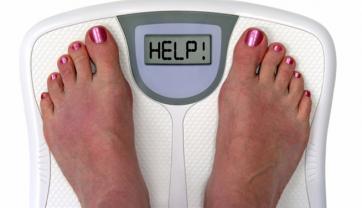 Someone once reminded me that our healthcare system is really the "practice of medicine", implying that as technology improves and ongoing studies are completed, our knowledge base continues to grow. In other words, what we knew yesterday may change tomorrow. Like many aspects of life, there are many shades of gray in medicine.
Someone once reminded me that our healthcare system is really the "practice of medicine", implying that as technology improves and ongoing studies are completed, our knowledge base continues to grow. In other words, what we knew yesterday may change tomorrow. Like many aspects of life, there are many shades of gray in medicine.
This week, the 2015 Dietary Guidelines Advisory Committee recommended several changes to the U.S. government's Dietary Guidelines for Americans that is updated every five years by the Dept. of Health and Human Services and the Dept. of Agriculture. These guidelines are used to set national policies related to diet. The new recommendations take aim at current cholesterol intake guidelines, suggesting that current available evidence shows no appreciable relationship between consumption of dietary cholesterol and the serum cholesterol circulating in one's blood. Does this mean eggs are back on the menu? After all, they are high in protein and low in saturated fats! There will be more debate on this issue before a final recommendation is entered into the official guidelines and we may end up agreeing that everyone metabolizes cholesterol differently resulting in different levels of risk.
Another well-known "shady" example is hormonal therapy for menopause symptoms. Forty years ago hormone therapy was the panacea for all menopause symptoms and many women believed it to be the 'fountain of youth'. Then the bombshell from the Women's Health Initiative--one of the largest studies done in women-- was released in 2002 and told us hormone therapy (HT) could cause great harm. The pendulum swung, and many women suddenly stopped HT and many women found their symptoms return. Today, we now know that there are many variables in hormone therapy, including dosage, delivery method, timing, etc and for some women, HT is a viable treatment and could benefit their health. In other cases, we better understand who is at greatest risk for complications due to hormone use. New data leads to new knowledge.....and better options! There are now many formulations of hormone therapy and new non-hormonal options that have changed the way we practice medicine. To learn more about menopause, visit menopausenu.org
The lesson: the practice of medicine is constantly changing and the risks and benefits we know today may be altered tomorrow.
What do we do to be sure we get the best treatment available?
- Find a provider who stays current and is willing to accept new options.
- Seek second opinions for complex health issues.
- Recognize that every medicine has risks and benefits (What would happen if you did not take that drug? Will side effects be worse than the cure?")
- Review your treatment plan at least once a year to determine if newer therapies may be more effective.
- Report unpleasant side effects (it advances knowledge!)
- Consider lifestyle changes that can compliment your treatments.

 A nationwide survey reported that more Americans are using mind and body approaches to improve health and well-being. Interest in yoga is particularly on the rise. The 2012 survey, developed by the NIH National Center for Complementary and Integrative Health (NCCIH) and the CDC, compared results with versions from 2002 and 2007. Survey highlights:
A nationwide survey reported that more Americans are using mind and body approaches to improve health and well-being. Interest in yoga is particularly on the rise. The 2012 survey, developed by the NIH National Center for Complementary and Integrative Health (NCCIH) and the CDC, compared results with versions from 2002 and 2007. Survey highlights: When we think about sex differences in health, we do not normally think about our eyes. While some clinical conditions are well known to affect the visual systems of men and women differentially, the sex-dependent effects on the visual system of other clinical conditions may be more subtle or more sporadic and hence less documented. Researchers are now discovering that sex differences exist in a wide range of eye disorders. In some cases, the differences can be related to the hormone milieu. In others, they are intertwined with other bodily systems such as neurotransmitter activity and blood flow.
When we think about sex differences in health, we do not normally think about our eyes. While some clinical conditions are well known to affect the visual systems of men and women differentially, the sex-dependent effects on the visual system of other clinical conditions may be more subtle or more sporadic and hence less documented. Researchers are now discovering that sex differences exist in a wide range of eye disorders. In some cases, the differences can be related to the hormone milieu. In others, they are intertwined with other bodily systems such as neurotransmitter activity and blood flow.  I
I No methods currently exist for the early detection of Alzheimer’s disease, which affects one out of nine people over the age of 65. Now, an interdisciplinary team of Northwestern University scientists and engineers has developed a noninvasive MRI approach that can detect the disease in a living animal. And it can do so at the earliest stages of the disease, well before typical Alzheimer’s symptoms appear.
No methods currently exist for the early detection of Alzheimer’s disease, which affects one out of nine people over the age of 65. Now, an interdisciplinary team of Northwestern University scientists and engineers has developed a noninvasive MRI approach that can detect the disease in a living animal. And it can do so at the earliest stages of the disease, well before typical Alzheimer’s symptoms appear. Northwestern University has a long history of opening its doors to young high school scholars interested in programs towards careers in science and medicine. Recently, more than 30 young men from Westinghouse College Prep spent time on Northwestern's medical campus during their
Northwestern University has a long history of opening its doors to young high school scholars interested in programs towards careers in science and medicine. Recently, more than 30 young men from Westinghouse College Prep spent time on Northwestern's medical campus during their  A recent
A recent